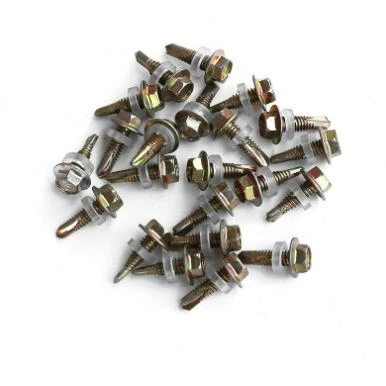

fastener types
Ноя . 30, 2024 22:25 Back to list
fastener types
Understanding Fastener Types A Comprehensive Guide
Fasteners are essential components in various industries, serving as the backbone of construction, manufacturing, automotive, and even furniture assembly. From holding together complex machinery to affixing simple components, the right fastener type can greatly influence the durability, reliability, and efficiency of a project. In this article, we’ll explore various fastener types, their applications, and the factors to consider when selecting the right one for your needs.
1. Bolts and Nuts
Bolts are one of the most common types of fasteners, featuring a smooth shaft with a head on one end and external threads on the other. They are typically used in conjunction with nuts, which are internally threaded fasteners. The combination of bolts and nuts provides a strong, reliable connection that can withstand significant loads. They come in various sizes, materials, and grades, making them suitable for applications ranging from construction to automotive assembly.
2. Screws
Screws differ from bolts in that they are designed to be threaded into a material directly, often without the help of a nut. They can be further classified into different types, including wood screws, sheet metal screws, and machine screws, depending on their intended use. The thread design and tip shape of screws are tailored for specific materials - while wood screws typically have coarse threads for better grip in wood, machine screws have finer threads to fasten metal parts reliably.
3. Rivets
Rivets are permanent fasteners used to join two or more pieces of material together. They consist of a smooth cylindrical shaft and a head on one end. Rivets are typically installed by inserting the shaft through pre-drilled holes in the materials and then deforming the other end to create a second head, providing a secure connection. Rivets are commonly used in applications where welding is impractical, such as in aerospace and structural engineering.
4. Washers
fastener types

Washers are flat disks that are used in conjunction with bolts, screws, and nuts to distribute load, provide a smoother surface, and protect materials from damage. They can also serve as spacers or locking devices, preventing fasteners from loosening over time. There are various types of washers, including flat washers, spring washers, and locking washers, each serving a specific purpose in mechanical assemblies.
5. Anchors
Anchors are specialized fasteners designed to secure objects to a variety of surfaces, especially in concrete or masonry. They expand within the material when installed, providing a strong hold. Common types of anchors include sleeve anchors, wedge anchors, and toggle bolts. Each type is engineered for different loads and applications, making it crucial to choose the right anchor for the job.
6. Clips and Clamps
Clips and clamps are fasteners designed for temporary or semi-permanent connections. Clips often hold components together without the need for additional tools, while clamps provide adjustable tension. These fasteners are frequently used in automotive applications, plumbing, and electrical installations, where ease of assembly and disassembly is essential.
7. Specialty Fasteners
In addition to the typical fasteners mentioned above, there are many specialty fasteners available for unique applications. Examples include thumb screws, set screws, and carabiners, each engineered for specific functions. Specialty fasteners can enhance user convenience, provide security, or simplify maintenance processes.
Conclusion
When selecting fasteners for a project, it is crucial to consider several factors, such as the materials being joined, load requirements, environmental conditions, and ease of installation. Understanding the various types of fasteners and their specific applications can help ensure that you choose the right components for your needs. Whether you’re working on a DIY home improvement project or managing a large-scale industrial operation, the right fastener can make all the difference in the durability and success of your work. Through careful selection and consideration, one can ensure that every assembly is as reliable and robust as possible, reflecting both quality craftsmanship and engineering precision.
Latest news
-
Premium Fasteners Manufacturer | AI-Driven Solutions
NewsAug.01,2025
-
Hot Dip Galvanized Bolts - Hebei Longze | High Strength, Corrosion Resistance
NewsAug.01,2025
-
High-Strength Hot Dip Galvanized Bolts - LongZe | Corrosion Resistance, Custom Sizes
NewsAug.01,2025
-
Best Self Tapping Screws for Drywall - Fast & Secure Installation
NewsJul.31,2025
-
High-Strength Hot Dip Galvanized Bolts-Hebei Longze|Corrosion Resistance&Customization
NewsJul.31,2025
-
Hot Dip Galvanized Bolts-Hebei Longze Metal Products|Corrosion Resistance&High Strength
NewsJul.31,2025

